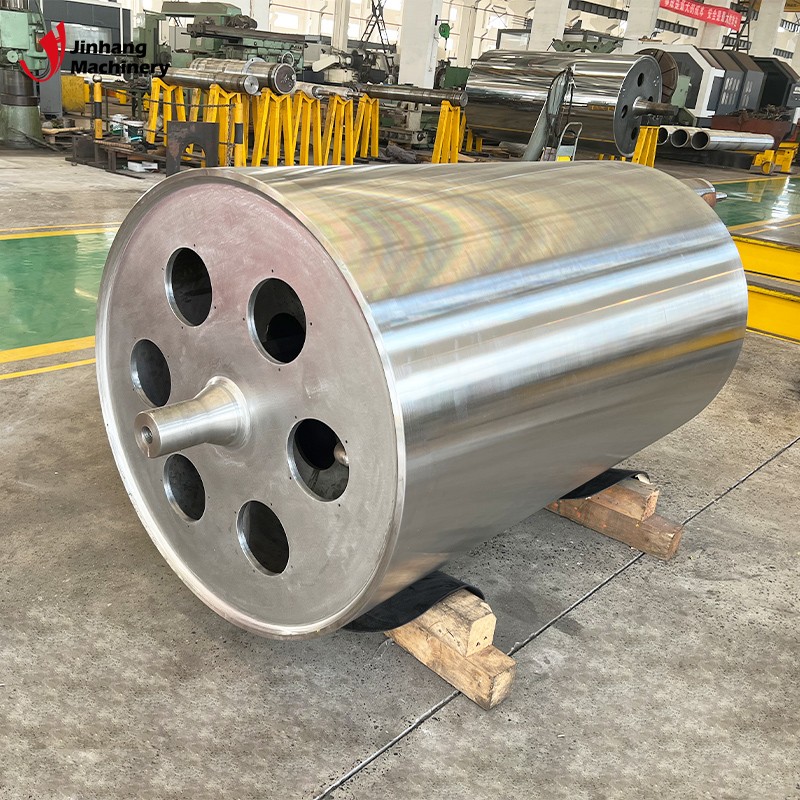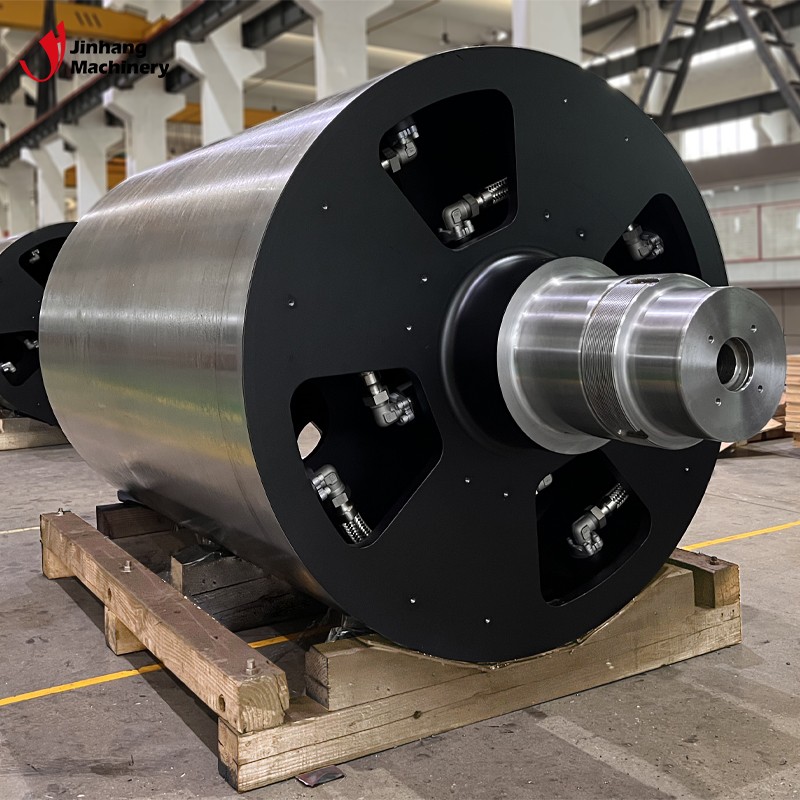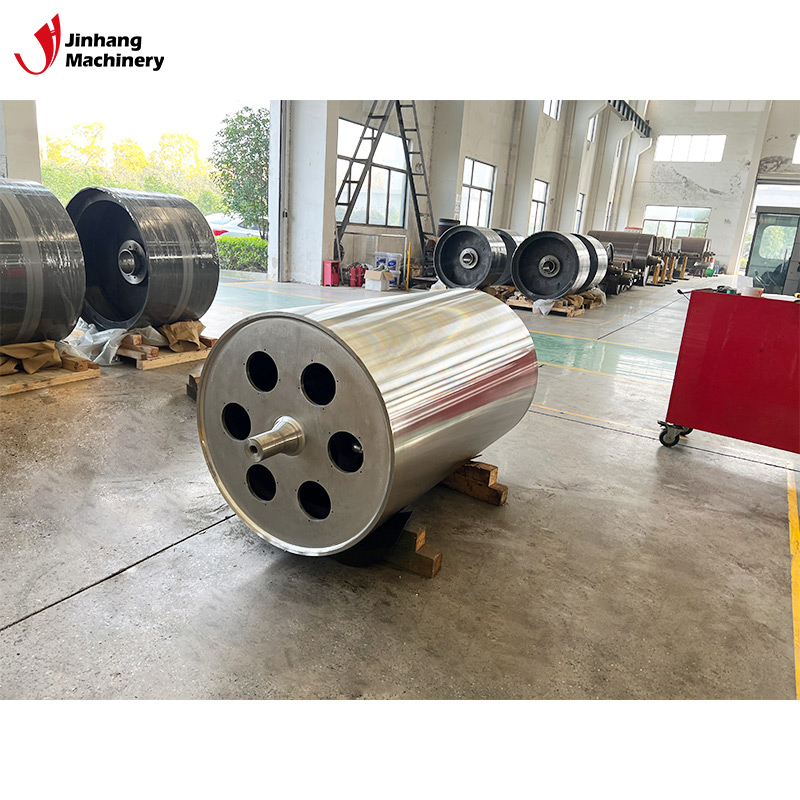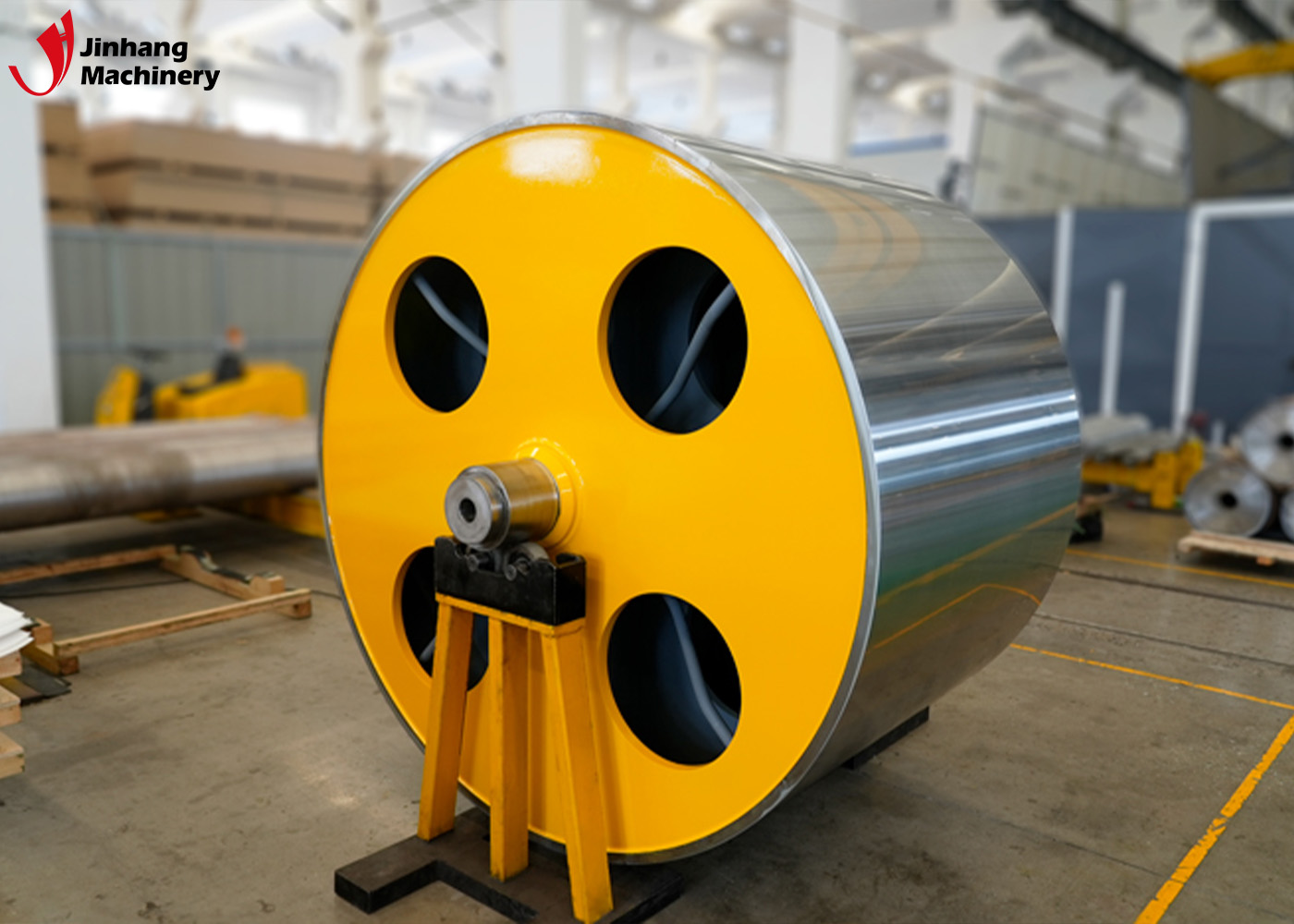When should industrial cooling rollers be used?
Industrial chill rollers are one of the most important equipment in modern manufacturing and processing, and are widely used in industries that require temperature control. By reducing material temperature, improving processing accuracy, and ensuring product quality, cooling rollers play an irreplaceable role in various production links. So, when should industrial cooling rollers be used?
This article will comprehensively explore this issue from the perspective of different industries, application scenarios, and the working principle of cooling rollers.

What is the working principle of industrial cooling rollers?
Before we have a deep understanding of the application scenarios of cooling rollers, we first need to clarify its working principle. Industrial cooling rollers are roller equipment with cooling water channels or other coolant flow systems inside. The roller surface quickly transfers the heat of the material to the coolant through contact with the processed material, thereby achieving the purpose of cooling the material.
Cooling rollers are usually made of stainless steel or other corrosion-resistant metals, and their surfaces can be polished and coated to ensure cooling efficiency and product surface quality. By adjusting the temperature of the coolant flowing inside, the temperature of the roller surface can be accurately controlled, thereby adjusting the cooling rate of the material during processing.

What are the application scenarios of industrial chill rollers?
The wide application of chill rollers is due to their vital role in multiple industries, especially in processes that require extremely strict temperature requirements. Here are a few typical application scenarios that detail when industrial chill rollers should be used.
Plastic and film manufacturing
Plastic extrusion and film production are among the most common applications for industrial chill rollers. In these production processes, plastic materials are usually extruded by heating and then need to be quickly cooled before forming and final shaping to ensure a smooth surface and uniform thickness of the product.
● Application scenario: In the manufacture of plastic film, the molten plastic is stretched and unfolded after passing through the extruder, and the role of the cooling roller is to quickly cool it to a stable state. This process can help prevent the film from wrinkling, deformation or uneven thickness.
● Importance of cooling: If plastic materials are cooled too quickly or too slowly, the physical properties of their finished products will be affected. Cooling too quickly may cause brittleness of the material, while cooling too slowly may cause deformation or unevenness. Therefore, temperature control of the cooling roller is critical.
Paper and paperboard production
The papermaking industry also relies on the help of industrial chill rollers. In the production process of paper and cardboard, the pulp needs to be quickly cooled down by chill rollers after being heated and dried. This not only helps to increase the production speed, but also improves the surface quality of the paper.
● Application scenarios: When producing high-speed rolls of paper or cardboard, the paper is heated to a high temperature in the dryer. At this time, chill rollers are needed to quickly cool the paper temperature for subsequent processing.
● Importance of cooling: If not cooled in time, the paper may curl and wrinkle, affecting the flatness and surface finish of the product. Chill rollers can also help the paper maintain a uniform moisture distribution and improve the quality of the final product.
Metal processing and heat treatment
In the field of metal processing, the cooling process of metal materials is a key step to ensure their physical and mechanical properties. Cooling rollers are widely used in the production of metal sheets and foils to help materials cool down quickly and keep flat after high-temperature heat treatment.
● Application scenarios: When hot-rolling or cold-rolling metal sheets, the metal materials need to be cooled to room temperature after high-temperature treatment to ensure their dimensional stability. The chill roller provides a uniform and controllable cooling environment in this process to ensure that the metal sheets do not warp or deform.
● Importance of cooling: Chill rollers can help metal materials maintain an ideal crystal structure, thereby improving their mechanical strength and fatigue resistance. In the production of metal foils, cooling rollers can also prevent problems such as foil adhesion or surface unevenness.
Textile industry
The cooling demand in the textile industry is equally important, especially in the production of synthetic fibers and textiles. Fiber materials usually need to be quickly cooled after heating and stretching to set the shape, and chill rollers play a key role in this process.
● Application scenarios: In fiber spinning and textile fabric processing, fiber materials need to be quickly cooled by chill rollers after stretching or heat treatment to keep their predetermined shape and size. Especially in the production of functional textiles, the temperature control accuracy of chill rollers directly affects the quality of the final product.
● Importance of cooling: If the fiber is not cooled evenly, it may lead to unstable fiber structure, reduced strength, and even defects in the product appearance. Cooling rollers can ensure that the fiber is evenly cooled throughout the production process.
Food processing
In the food processing industry, temperature control is also a key factor in ensuring product quality and safety. Chill rollers are mainly used in the production of food packaging films and certain food processing links.
● Application scenarios: In the production of food packaging films, the extruded packaging materials need to be quickly cooled by the cooling roller to achieve appropriate flexibility and strength. At the same time, in the processing of certain frozen foods, the cooling roller can also be used to reduce the temperature for rapid freezing.
● Importance of cooling: The production of food-grade materials needs to meet strict hygiene standards. The chill roller can not only quickly cool down, but also prevent the material from being contaminated during the cooling process by maintaining a clean surface.
Coating and laminating industry
The role of the chill roller in the coating and laminating industry, especially in the processing of heat-sensitive materials, cannot be ignored. The coating material needs to be cooled by the chill roller after heating to ensure that it is evenly adhered and forms an ideal surface effect.
● Application scenarios: Coating and laminating are usually important links in the hot melt process. The cooling roller can help the material quickly reach the set temperature and prevent defects such as bubbles or lines on the surface.
● Importance of cooling: Improper cooling will cause the laminating or coating material to deform during the cooling process, affecting its adhesion and surface finish. The uniform cooling of the chill roller ensures the adhesion and aesthetics of the coating.

How to choose the right cooling roller for you?
Temperature control accuracy
The core function of the cooling roller is to accurately control the temperature. Therefore, when choosing a cooling roller, you must consider whether its temperature control accuracy meets the production requirements. Especially in plastic, film and metal processing, different materials have different requirements for cooling speed and temperature, and the temperature control accuracy directly affects the quality of the final product.
Material and surface treatment
The material of the cooling roller directly determines its durability and cooling effect. Common cooling roller materials include stainless steel, aluminum alloy and other corrosion-resistant and high-temperature resistant materials. At the same time, surface treatment processes such as polishing, chrome plating or coating can improve the cooling efficiency and durability of the chill roller.
Internal cooling system design
The cooling system design inside the chill roller is also crucial. The use of different cooling media (such as water, oil or other coolants) will affect the cooling efficiency of the chill roller, and the internal flow channel design determines the flow rate and heat dissipation capacity of the coolant. Choosing a suitable cooling system can ensure that the cooling roller maintains good heat conduction while operating efficiently.
Applicable industries and product specifications of chill rollers
Different industries have different requirements for the specifications of chill rollers. For example, cooling rollers used in plastic film production usually require larger diameters and surface widths to ensure uniform cooling of large-format materials. In metal processing, the material and strength of the cooling roller are even more important. Therefore, when choosing a cooling roller, it is necessary to accurately match it according to the actual application scenario.
What are the common problems with using industrial chill rollers?
Uneven cooling of chill rollers
In actual use, the chill roller may experience uneven cooling. This is usually caused by poor coolant flow or unreasonable internal design. Regularly cleaning the coolant channels inside the chill roller to ensure the normal operation of the cooling system can effectively avoid this problem.
Surface wear of chill rollers
After long-term use, the surface of the chill roller may be worn or corroded due to material friction and chemicals in the production environment. In order to extend the service life, it is recommended to regularly check the surface of the chill roller and perform surface treatment or replacement when necessary.

JH Machinery – The Leading Supplier of Custom Rolls in China
As a leading manufacturer of industrial rolls, JH Machinery has been supplying high-quality, customized rolls for over two decades. We specialize in a range of products, from cooling roller and rubber rolls to electroplated chrome rolls and tungsten carbide-coated rolls. Our factory uses cutting-edge technology and the finest materials to ensure each roll meets your specifications. Buy directly from our Chinese factory for discounted prices and tailored solutions. Reach out today to learn more about our wholesale options!
